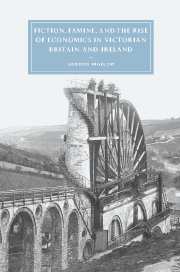PART I - ORIGIN STORIES AND POLITICAL ECONOMY, 1740–1870
Published online by Cambridge University Press: 22 September 2009
Summary
In order to understand the power economic theory has exercised in the twentieth century, it is necessary to understand the origins of its precursor, political economy, in eighteenth-century thought. This eighteenth-century context is one itself absorbed with the question of origins, not only the origins of wealth, but of human language, philosophy, and civilization. What I propose in this chapter is that Adam Smith's theory of wealth and poverty developed out of his engagement with the philosophy of language, in debates about the role of signs in human history, and about the significance of different forms of writing. From the work of Adam Smith, I go on to trace the development of economic thought, from “political economy” to twentieth-century “economics,” in relation to trends in the philosophy of language in the same periods. What emerges from this particular tracing of historical change is that modern economics is a science of representation, one that has attempted since its inception to understand the way outward signs of wealth – that is, commodities – present, correspond to, or occult inner states of mind, thought, desire, or being. The rise of modern, neoclassical economics in the nineteenth century turned upon a new way of understanding commodities as signs, and it is the gradual development of that new understanding that I will try to follow in this section of the book.
- Type
- Chapter
- Information
- Publisher: Cambridge University PressPrint publication year: 2003



